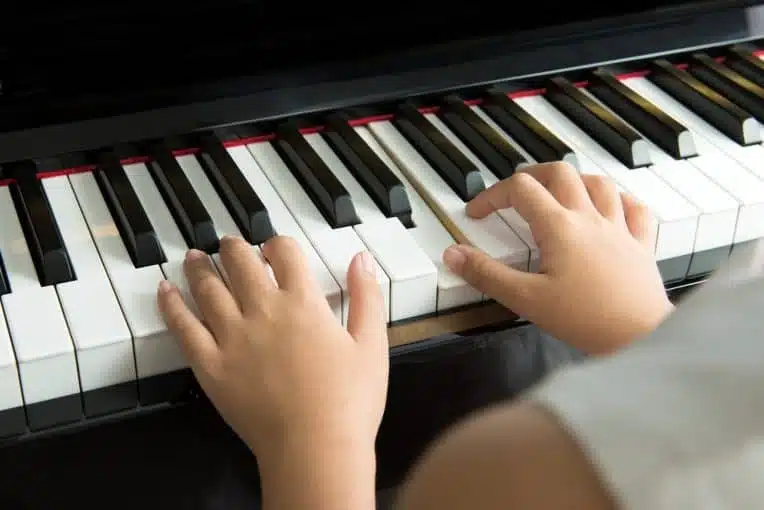
There is a common misconception that most home school curriculums focus solely on academics and ignore the arts completely. While largely false, it is understandable where this notion came from. Home schooled students, on average, score consistently higher in standardised testing and are better prepared for university, but this doesn’t mean that excellence comes at the sacrifice of one of the most important subjects that we can offer our children.
Music theory and the arts are very important to the development of children and offering it in a home school environment has many benefits. In fact, let’s take a look at some of them now.
10 Benefits Of Music In A Home School Curriculum
Music Offers A Sense Of Achievement- music can give children a sense of achievement as they learn to do something they have never done before. Playing an instrument can be a challenging, yet achievable goal and students can take pride in mastering that instrument.
Music Helps Develop Language And Reasoning- language and reasoning skills are two very important aspects of any child’s development. Music training helps develop the areas of the brain responsible for these two factors.
Music Aids Emotional Development- students who practice music are much more emotionally developed and have a deeper sense of empathy towards other cultures.
Music Improves Memorisation- we all struggle with remembering things at times and music, especially learning sheet music, can help develop and improve a child’s memory early on.
Music Can Improve Auditory Skills- children who study music are able to detect meaningful, information-bearing elements in certain sounds better than children who don’t study music or play an instrument.
Music Increases Coordination- learning a musical instrument can help a child increase their coordination and build dexterity within their hands and fingers.
Music Develops Spatial Intelligence- studying music can help develop spatial intelligence enabling children to understand advanced mathematics and see the world more clearly.
Music Teaches Pattern Recognition- pattern recognition skills are often taught in math, but they can be developed in music class as well.
Music Teaches Discipline- it takes a lot of discipline to learn, practice and master a musical instrument. Children who do so, are much more disciplined in other important areas of their lives as well.
Music Develops Creative Thinking- research shows that children who study the arts can learn to think creatively. They are better able to solve problems by thinking outside of the box.
Contact Cambridge Home School
To learn more about the importance of music in a home school curriculum and how an independent online secondary school can provide your child with a much better education, contact Cambridge Home School today.
If you enjoyed this article, please feel free to share it on your favourite social media sites.
—
FAQ Section
Is it true that homeschooling focuses only on academics and neglects the arts?
No, this is a common misconception. Home school curriculums can, and often do, include subjects like music and the arts, which are essential for a child’s well-rounded development.
What are the benefits of incorporating music into a home school curriculum?
Incorporating music into a home school curriculum has various benefits such as improving emotional development, enhancing language and reasoning skills, aiding memorisation, and fostering a sense of achievement.
How does music contribute to a child’s emotional development?
Children who practice music are generally more emotionally developed and have a deeper sense of empathy towards other cultures.
Can music help in academic subjects like maths?
Yes, music helps in developing spatial intelligence and pattern recognition skills, which are essential in understanding advanced mathematics.
What impact does learning music have on discipline and creative thinking?
Learning to play a musical instrument requires discipline, which can transfer to other areas of a child’s life. Additionally, music fosters creative thinking, allowing children to think outside the box.